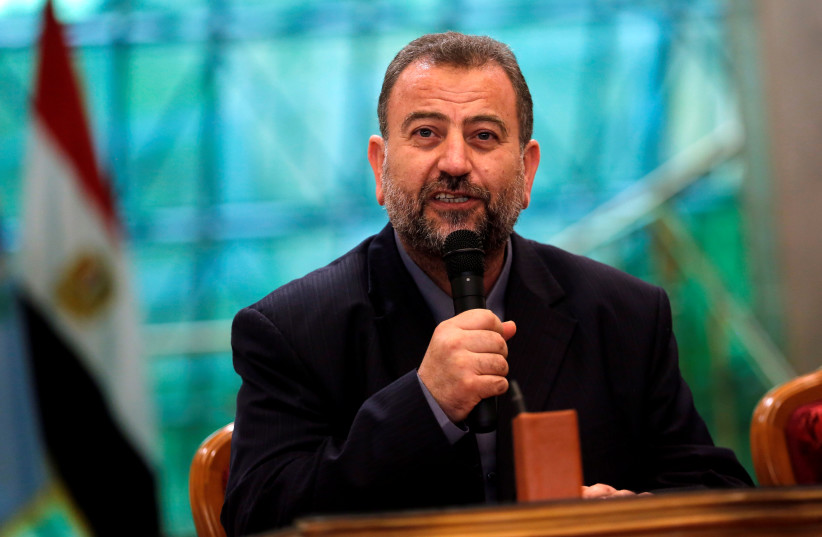The reactions of pro-Iranian media in the Middle East to the killing of Hamas deputy leader Saleh al-Arouri run the gamut from claims that it will not go “unpunished,” to claims that Hamas “resistance” will not be impacted.
Al-Mayadeen, for instance, ran seven articles on the blast, one of which examines who Arouri was, noting he was born in 1966 and was detained in the 1990s by Israel, eventually migrating to Turkey after his release, before moving to Qatar and Lebanon.
Hamas leader Ismail Haniyeh said that Hamas “will never be defeated,” and called the killing a “terrorist” act of “aggression” that expands the conflict instigated by the brutal cross-border massacre attack carried out by Hamas terrorists against southern Israeli towns on Oct. 7, leaving 1,200 Israelis and foreigners dead in their way. 240 people were taken hostage in the Gaza Strip, as Israel launched a ground offensive to disable Hamas from military power in Gaza.

Another article at Al-Mayadeen focuses on Hezbollah: The leader of the terror group, Hassan Nasrallah, said the “assassination” will not go “unpunished.” In Yemen, the Houthis, who have been attacking ships in the Red Sea, claimed that the killing would make their attacks “stronger.” In Gaza, Hamas continued to brag that it was fighting Israel and claimed continued successes in battles in Khan Yunis and Al Bureij. A general strike took place in the West Bank on Wednesday to protest Arouri’s death.
Middle East media reacts
AL-Masirah, a media organization tied to the Houthis, ran similar articles about the killing as other pro-Iran media, as well as quoting Haniyeh and Nasrallah, a reflection of how the pro-Iran media nexus in the Middle East is keyed into all the Iranian proxies, and arenas in which Iran operates.
Iran’s Tasnim News reported that the Iranian foreign ministry slammed the “assassination” of Arouri. Fars News, close to the IRGC, detailed the reactions of Palestinian Islamic Jihad, an Iranian proxy that operates in Gaza and the West Bank.
An advisor to Iran’s Supreme Leader repeated the mantra that the killing will not stop the “Palestinian resistance,” according to the report. An image at Fars News showed missiles and a Hezbollah flag and also quotes Nasrallah claiming the killing will not go unpunished.
This claim has been repeated across all the pro-Iran media in the region, in Lebanon, and Yemen. Fars News also claimed that there was an attack on Al-Asad base in Iraq on Tuesday evening. Iranian proxies in Iraq and Syria have carried out around 120 attacks on US forces since Oct. 7. Iran wants to unite the Iraq-Syria “arena” with other attacks on Israel and the Red Sea.
The articles in the pro-Iran media reflect a kind of message discipline: there will be retaliation against Israel, whom Iran blames for the attack, and Hamas will not be deterred by it.
